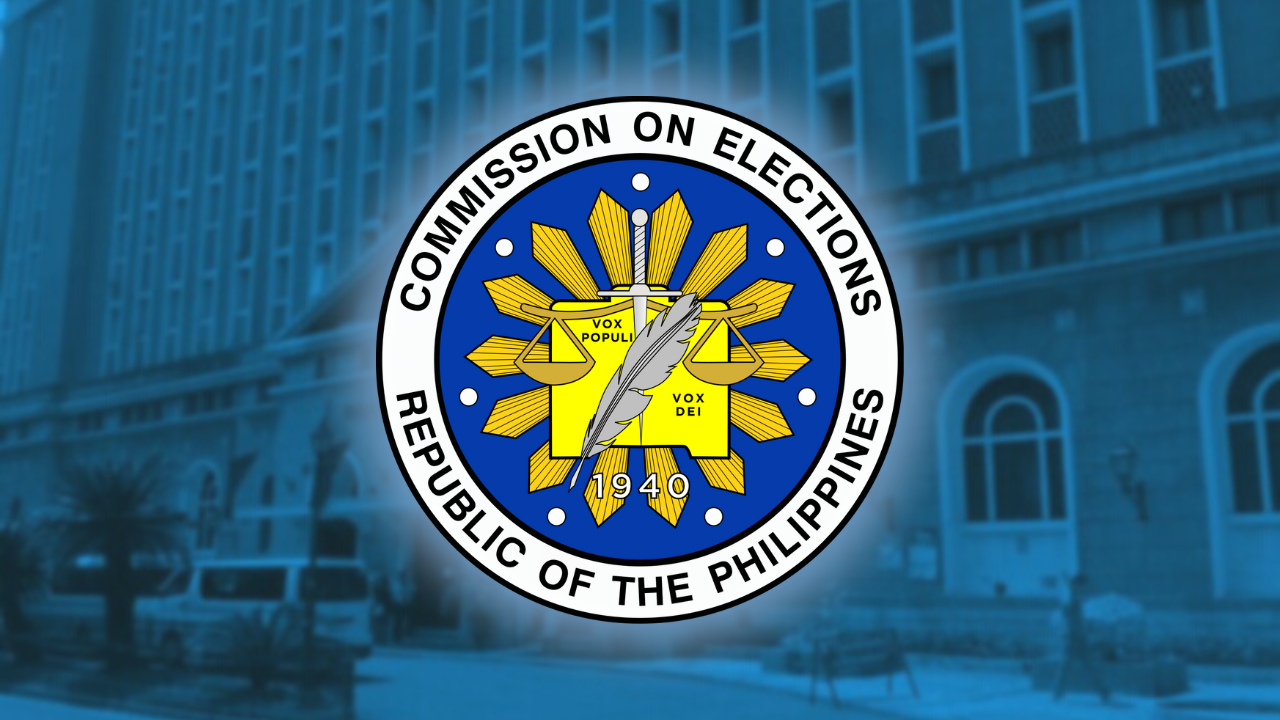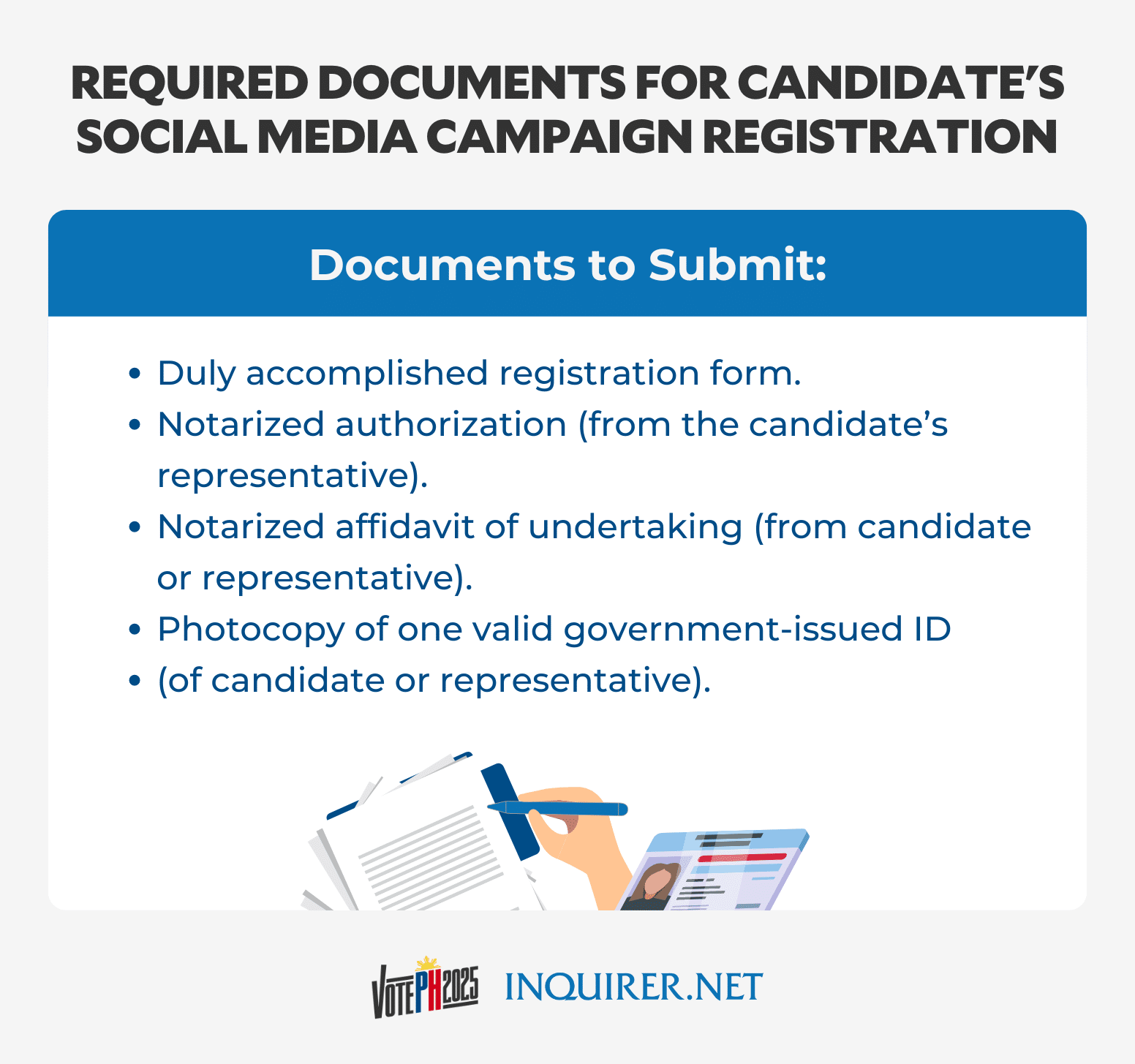Comelec releases guidelines for digital election campaign

Inquirer files
MANILA, Philippines — The Commission on Elections (Comelec) released on Wednesday the guidelines for digital election campaigns for the 2025 national and local elections.
According to Resolution No. 11064, the guidelines include the use of social media platforms, AI (artificial intelligence), and the internet for the digital campaign as well as the prohibition and punishment for spreading disinformation and misinformation for the 2025 midterm elections.
The resolution also mandates that the Task Force KKK (Katotohanan, Katapatan, at Katarungan) sa Halalan, the Education and Information Department (EID), and the law department of Comelec will implement the guidelines, in cooperation with the citizen arms of the poll body.
READ: Comelec forms task force vs media stunts
All social media accounts, including the websites, podcasts, blogs, vlogs, and other online platforms of candidates, parties, and their respective teams participating in the 2025 elections shall be registered with the EID within 30 days after the filing of certificates of candidacy until December 13, 2024.
The following must be submitted during the registration:
- Duly accomplished registration form (to be accomplished and submitted to the EID)
- Notarized authorization (to be submitted by the authorized representative of the candidate or party, private individual or entity)
- Notarized affidavit of undertaking (by the candidate or authorized representative of a political party, coalition, or party-lists)
- Photocopy of one valid government-issued ID (of the candidate, authorized representative)
Upon submission of the requirements during the registration, these are the following steps of approval and publication of digital campaigns through social media:
- Issuance of receipt and final evaluation by the EID
- Further review by the Task Force KKK sa Halalan and endorsement to the Comelec en banc
- Approval by the Commission en banc
- Publication by the EID
Meanwhile, registered social media accounts and other platforms shall disclose their AI usage and use appropriate technology to identify the legitimacy of the sources used. This also includes disclosure that a certain content has been manipulated by AI.
Failure to disclose AI usage will require an explanation why a complaint for violating the rule should not be filed against them. Requests to take down or block AI-generated contents in the digital platforms will be done by the poll body through Task Force KKK sa Halalan to technology partners and concerned law enforcement agencies.
Guidelines in making visual, audio, and audio-visual contents:
In using VISUAL MEDIA, the disclosure or disclaimer must be done:
- Text of the disclosure or disclaimer must appear in a font size no smaller than the largest font used within the campaign material
- Must be large enough to be readable
- Must be clearly distinguished from other content, with sufficient color contrast between the text and the background
- Must be enclosed in a printed box that can be distinguished from other contents
For AUDIO-ONLY MEDIA, the disclosure or disclaimer must be done:
- Must be spoken in a clear and audible manner
- Volume should be easily heard by the listener
For AUDIO-VISUAL MEDIA, the disclosure and disclaimer must be done:
- Must be in visible written form and audible statement
- Ensure that content is understandable for an average viewer
Prohibited use of ‘false amplifiers’
Usage of “fake amplifiers” or fake accounts, bots, deepfakes to spread disinformation and misinformation against a certain candidate or party, the Philippine election system, Comelec, or the electoral process has corresponding disciplinary actions.
READ: Comelec eyes ban on deepfakes, AI in 2025 midterm polls
Once the usage is reported, monitored or detected by the Task Force KKK sa Halalan, the following actions must be done:
- Gathering, documenting, recording, and preserving evidence by the task force
- Initial validation and investigation of reports, complaints, or detections
- Issuance of show cause order
- Motu proprio filing of election-related offense to the law department
- Submission of complaint to the technology platform or to the National Telecommunications Commission, Cybercrime Investigation and Coordinating Center, the National Bureau Investigation Cybercrime Division, the MTRCB (Movie and Television Review and Classification Board) or other concerned agencies
- Referral of complaint to other agencies
- Initial debunking of the false information propagated
